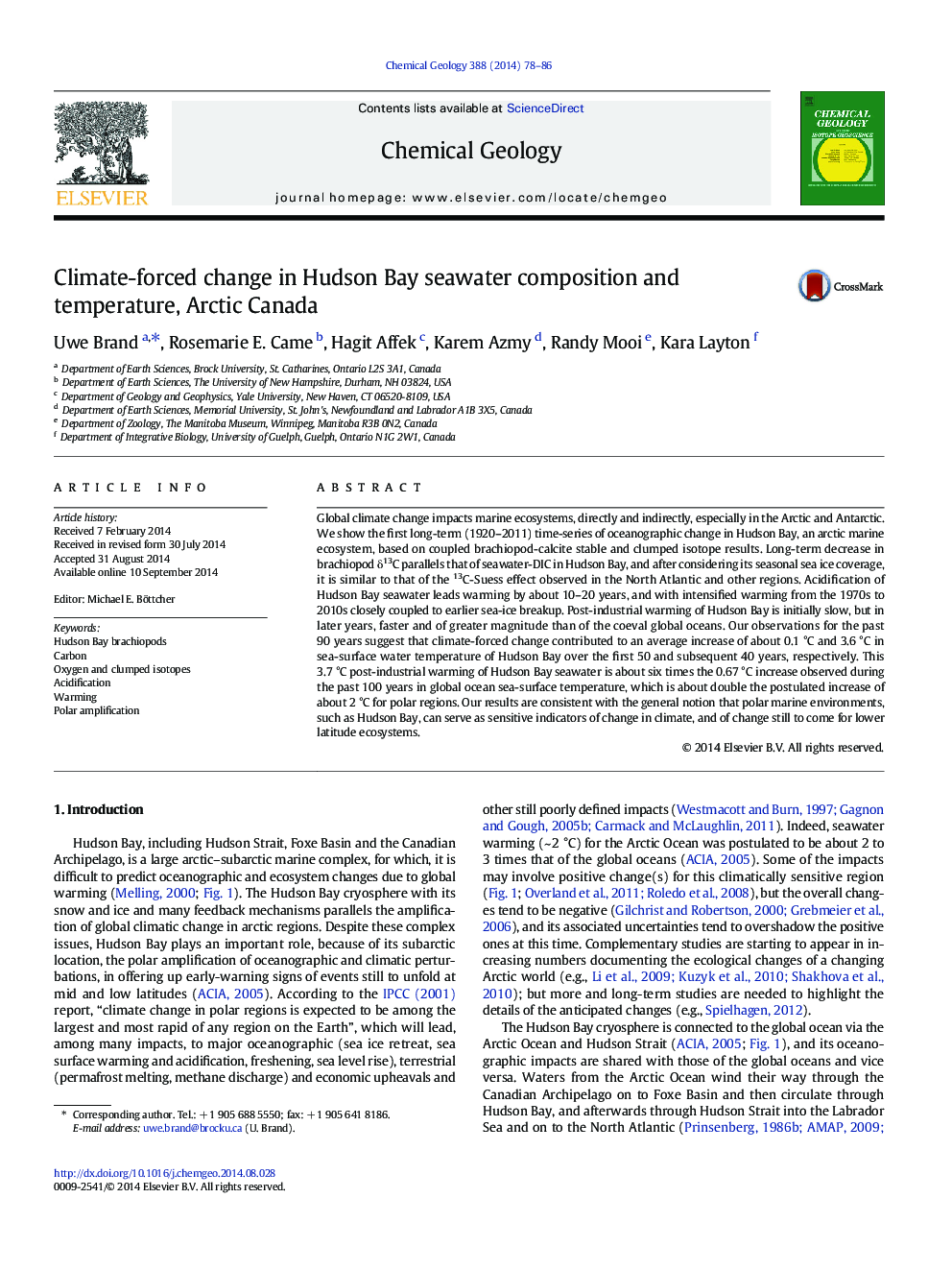| کد مقاله | کد نشریه | سال انتشار | مقاله انگلیسی | نسخه تمام متن |
|---|---|---|---|---|
| 4698698 | 1637584 | 2014 | 9 صفحه PDF | دانلود رایگان |
• Hudson Bay brachiopod isotopes record post-industrial seawater impacts.
• Hudson Bay seawater acidification leads warming by about 10–20 years.
• Hudson Bay SST warming exceeds global SST warming by a factor of about 6.
Global climate change impacts marine ecosystems, directly and indirectly, especially in the Arctic and Antarctic. We show the first long-term (1920–2011) time-series of oceanographic change in Hudson Bay, an arctic marine ecosystem, based on coupled brachiopod-calcite stable and clumped isotope results. Long-term decrease in brachiopod δ13C parallels that of seawater-DIC in Hudson Bay, and after considering its seasonal sea ice coverage, it is similar to that of the 13C-Suess effect observed in the North Atlantic and other regions. Acidification of Hudson Bay seawater leads warming by about 10–20 years, and with intensified warming from the 1970s to 2010s closely coupled to earlier sea-ice breakup. Post-industrial warming of Hudson Bay is initially slow, but in later years, faster and of greater magnitude than of the coeval global oceans. Our observations for the past 90 years suggest that climate-forced change contributed to an average increase of about 0.1 °C and 3.6 °C in sea-surface water temperature of Hudson Bay over the first 50 and subsequent 40 years, respectively. This 3.7 °C post-industrial warming of Hudson Bay seawater is about six times the 0.67 °C increase observed during the past 100 years in global ocean sea-surface temperature, which is about double the postulated increase of about 2 °C for polar regions. Our results are consistent with the general notion that polar marine environments, such as Hudson Bay, can serve as sensitive indicators of change in climate, and of change still to come for lower latitude ecosystems.
Journal: Chemical Geology - Volume 388, 21 November 2014, Pages 78–86
